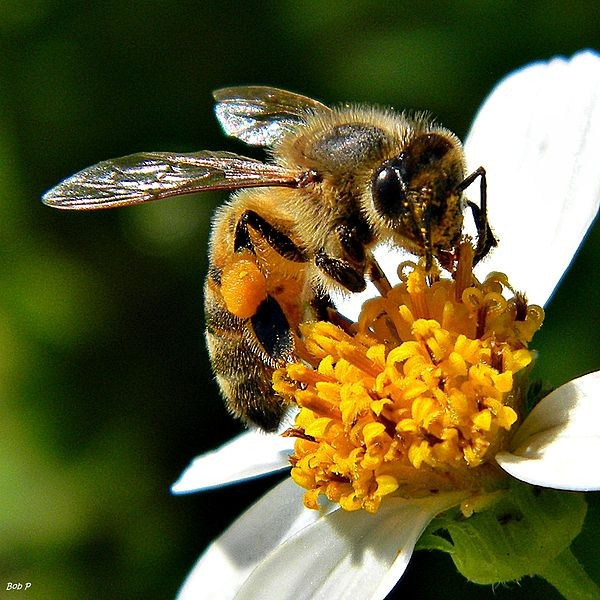Bloodsucking Parasite Killing UK Honeybees with 'Deformed Wing Virus'

A bloodsucking parasite is killing off swarms of honeybees across the UK by infecting them with Deformed Wing Virus (DWV), scientists have discovered.
DWV is one of the most common viruses affecting honeybees across Europe and is now one of the biggest threats to populations in the UK.
Honeybees have suffered huge colony losses over recent years as a result of parasites and the viruses they spread. This is of huge significance as they add around $40bn (£23.5bn) to the global crop value through pollination.
DWV leads to developmental deformities, reduced foraging ability and shorter lifespan. However, scientists at the University of Warwick have now discovered that the virus is amplified when Varroa, a tiny parasitic mite, is present.
Published in PLOS Pathogens, the study found that where colonies are Varroa free, DWV is only present at low levels and symptoms are less pronounced. When Varroa feed on honeybee blood, the virus is transmitted and amplified – explaining why some colonies suffer far worse.
Study leader David Evans said: "We found that a harmful variant of the virus only multiplies rapidly if it is directly injected into honeybee haemolymph by Varroa. Once injected, the variant takes over. In mite-exposed bees, levels of this single virulent form can be 10,000 times higher than in the absence of Varroa.
"Although exposure to Varroa caused disruption to a number of genes involved in the bee's immune response, it is the route of transmission which has caused this severe strain of DWV to become widespread.
"Our results strongly suggest that DWV is widespread in UK honeybees – even where Varroa is absent. However, the identification of a single virulent form of the virus is an important step in developing strategies to boost honeybee health, to prevent colony losses and to safeguard this important pollinator."
© Copyright IBTimes 2025. All rights reserved.






















